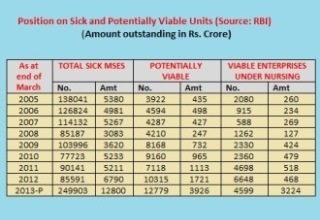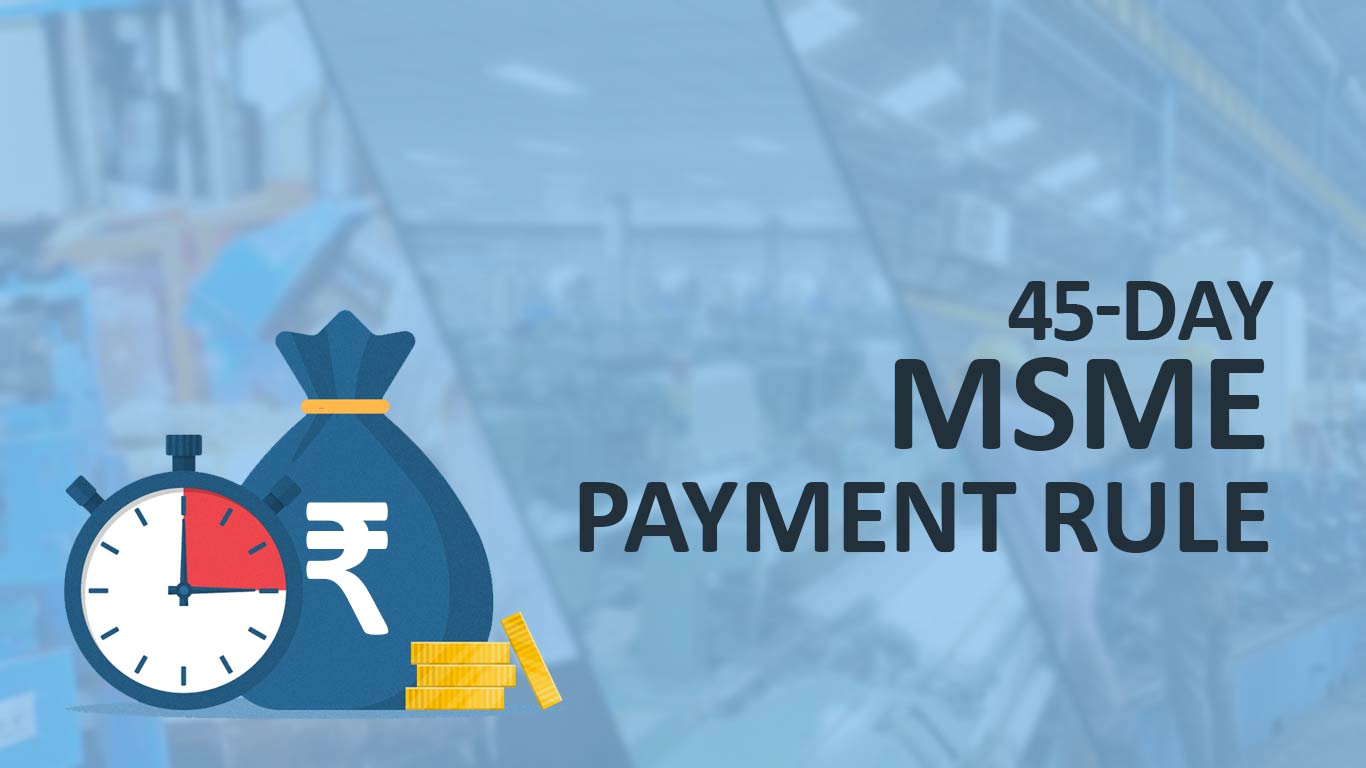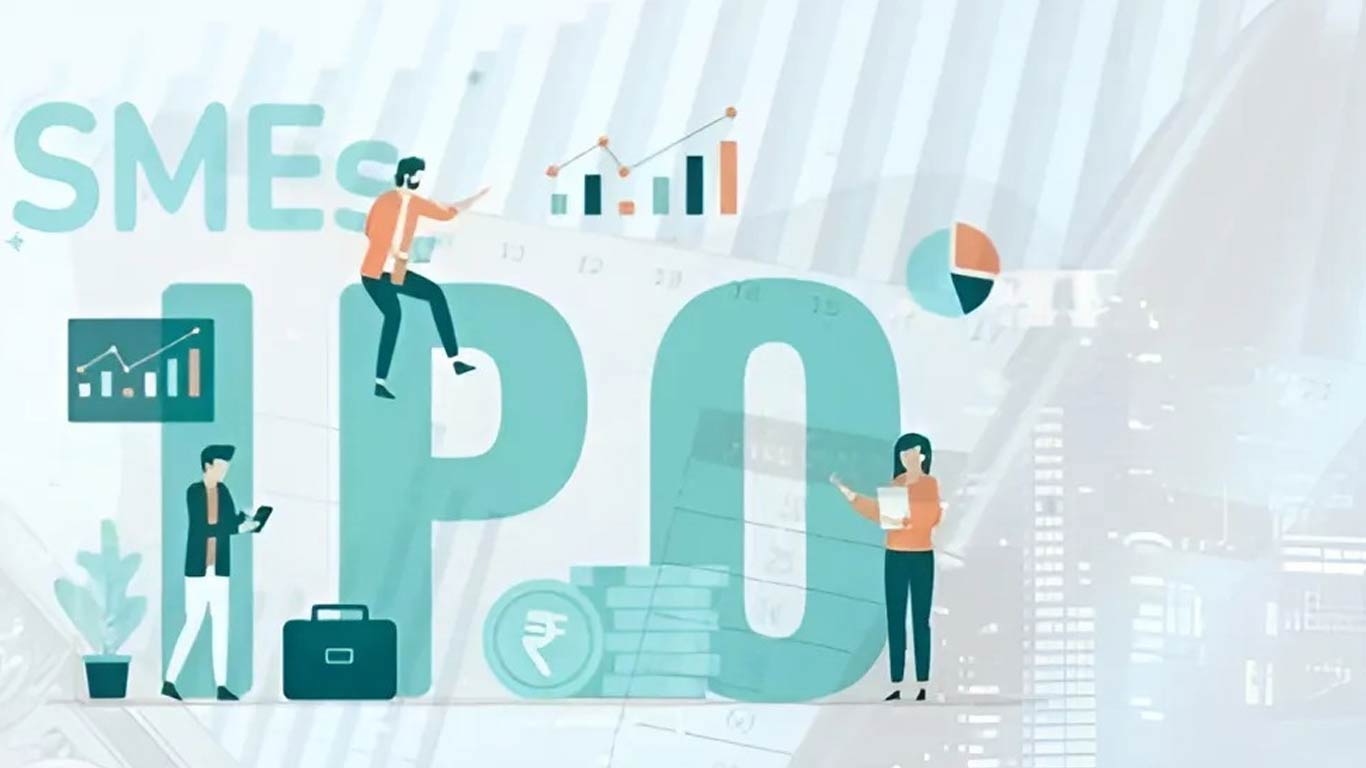Increase in sick micro & small, a cause for concern
Updated: Mar 25, 2014 03:04:46pm

However, there was a decline in sick MSMEs between 2005 and 2008 from 138,041 to 85,187, the outstanding loans decreasing from Rs 5,380 crore to Rs 3,083 crore.
This was revealed in the report of the Inter-Ministerial Committee for Accelerating Manufacturing in the MSME sector of September 2013.
The committee chaired by MSME Secretary, Madhav Lal has made 63 recommendations covering matters pertaining to infrastructure, technology, finance and marketing that affect MSMEs.
The key recommendations of the committee include allotting more than 30,000 plots lying vacant in industrial estates across the country to start-ups who have good business plans; setting up of a Credit Guarantee Fund with a corpus of Rs 1,000 crore, purely for enterprises started by graduate engineers and graduate management trainees; operationalization of India Inclusive Innovation Fund; and reduction in lending rates to MSEs, among others.
The recommendations were made to accelerate manufacturing in the MSME sector and improve their performance.
Towards this, the Committee held detailed consultations with stakeholders in the government and in the industry. They drew upon suggestions made in previous reports dealing with the problems and issues of the industry in general and MSME sector in particular.
The report goes on to say that during deliberations with a diverse set of MSME stakeholders, it was repeatedly flagged that the MSMEs, as individual and collective entities, lack the abilities of the larger enterprises to advocate on economic and functional issues, and therefore come adversely on the receiving end of the unexpected actions of other stakeholders, including the state machinery.
“While the primary concern of the entrepreneur should be to run the enterprise, the prevalent ecosystem places huge demands on the time and resources of the entrepreneur engaged in manufacturing. Moreover, the issues and challenges at the different stages of the lifecycle of a manufacturing enterprise are quite diverse.
“A complex and unfriendly business ecosystem pushes small entrepreneurs towards the informal and unregistered segment, which is growing faster than the organised segment by more than five times, and already accounts for over 95 percent of all MSMEs. This trend must be reversed as it is not sustainable.
“Hence, there is a need for a common understanding amongst the policy makers and administrators in multiple departments of the local, state and central governments to help create an ecosystem that enables and assists entrepreneurs through the life cycle of creation, growth and closure of enterprises and encourages them to operate in the organised economy,” it said. (KNN/ES)











